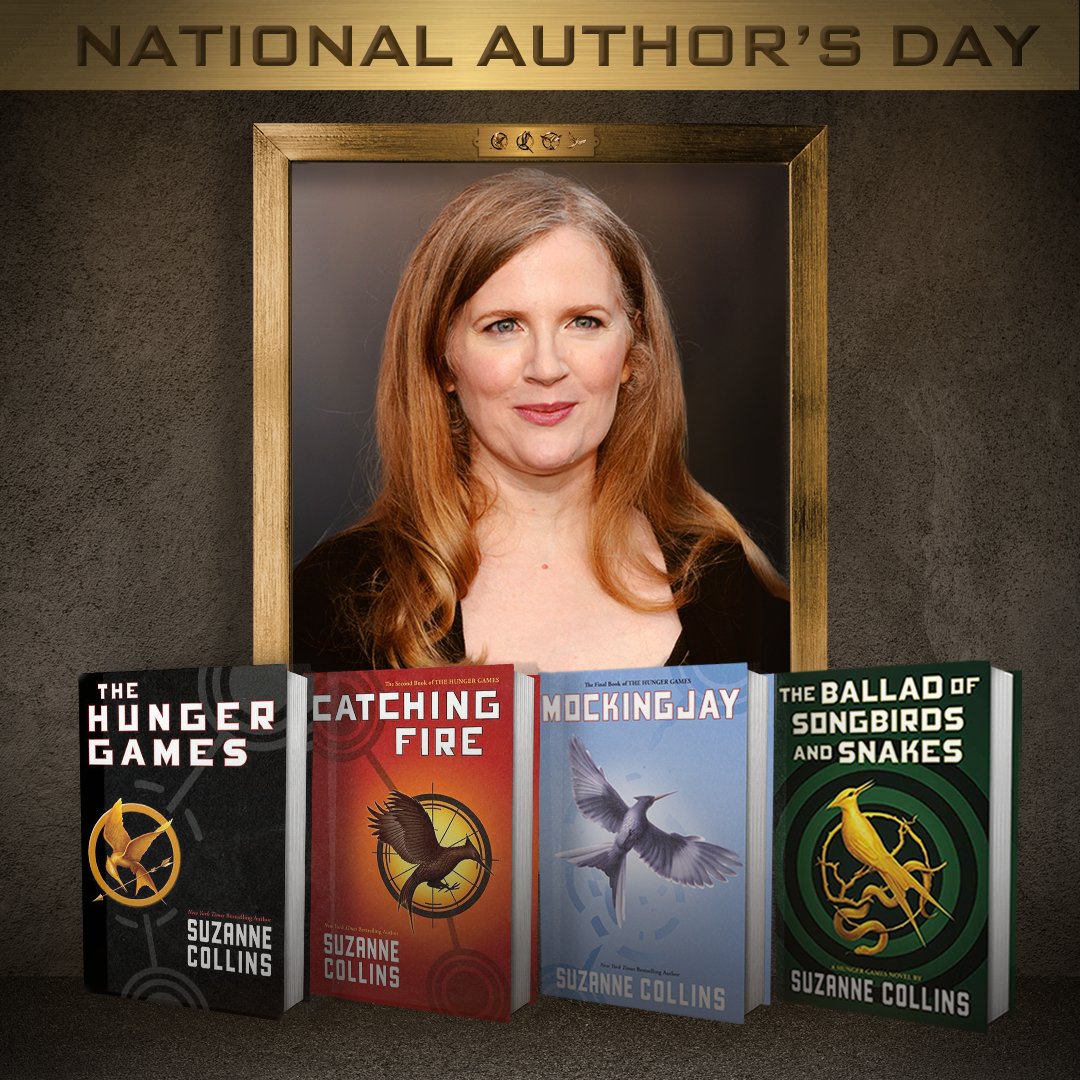Books by Suzanne Collins: A Deep Dive into the Hunger Games and Beyond

Suzanne Collins, the acclaimed author behind the globally renowned Hunger Games trilogy, has captivated readers worldwide with her compelling narratives and thought-provoking explorations of dystopian societies and the resilience of the human spirit. This article delves into the multifaceted world of Suzanne Collins’ literary contributions, examining her works, authorial style, and enduring cultural impact, drawing upon various sources and perspectives.
The Hunger Games Trilogy: A Critical Analysis
Collins’ Hunger Games trilogy—comprising The Hunger Games, Catching Fire, and Mockingjay—is a cornerstone of young adult dystopian fiction. The series’ premise, a televised battle royale where children fight to the death, is both gripping and disturbing, serving as a potent metaphor for societal control, oppression, and the manipulation of media.

The protagonist, Katniss Everdeen, is a complex and compelling character. While often portrayed as a “badass” heroine, many reviews highlight her flaws: her initial emotional stiffness, her quick judgments, and her occasional cluelessness. However, it’s precisely these imperfections that make her relatable and human, a far cry from the often unrealistic and flawless heroines of other young adult fiction. Her unwavering loyalty to her family and her resourcefulness in the face of unimaginable cruelty are central to her appeal. While romantic elements are present, primarily in the form of a complex relationship with Peeta Mellark, many readers appreciate that Katniss’s primary focus remains on survival and the well-being of her loved ones, rather than solely on romantic pursuits. The love triangle involving Peeta and Gale, a frequent point of discussion among readers, is viewed by some as a distraction, while others see it as a critical element in exploring Katniss’s emotional development and the complexities of loyalty and love.

The books themselves are praised for their fast-paced plot, punctuated by moments of intense emotional impact, particularly Rue’s death, which serves as a pivotal turning point in Katniss’s emotional arc. Collins’ writing style, while described as choppy by some, is effective in creating a sense of immediacy and urgency, mirroring the frantic pace of the events. The inclusion of gruesome and realistic scenes effectively underscores the brutal reality of the Games and the oppressive nature of the Capitol’s regime.
Movie adaptations, while praised for bringing the characters and world to life, are often criticized for leaving out nuanced details and the political intricacies explored in the books. Jennifer Lawrence’s portrayal of Katniss is consistently praised for capturing her emotional depth.
Reviews on Lbibinders.org reveal diverse interpretations. Some readers find the books profoundly moving and thought-provoking, while others criticize their simplicity or find the romantic aspects underdeveloped or distracting from the overarching themes of survival and rebellion. Regardless, the enduring popularity and influence of the Hunger Games trilogy are undeniable.

The Ballad of Songbirds and Snakes: A Prequel Perspective
The prequel novel, The Ballad of Songbirds and Snakes, offers a different perspective on the Hunger Games universe, focusing on the youth of Coriolanus Snow, the later President Snow. This prequel explores the early days of the Hunger Games, revealing the development and evolution of the games themselves, and providing a deeper understanding of the motivations and complexities of a character previously established as an antagonist. The book is lauded for its ability to stand alone as a compelling narrative while simultaneously enriching the overall understanding of the Hunger Games world. It explores Snow’s internal conflicts and moral ambiguities, providing readers with a more nuanced portrayal of his journey toward tyranny.
The Underland Chronicles: A Departure into Middle-Grade Fantasy
Collins’ Underland Chronicles, a five-book series for middle-grade readers, presents a stark contrast to the dystopian setting of The Hunger Games. These books follow Gregor, an eleven-year-old boy who finds himself transported to a fantastical world beneath the city of New York, filled with mythical creatures and prophecies. This series showcases Collins’ ability to craft compelling narratives across different genres, demonstrating her versatility as a writer. While maintaining the core elements of adventure and suspense characteristic of her work, The Underland Chronicles embraces a more magical and imaginative realm, suitable for a younger audience. The series explores themes of responsibility, courage, and friendship, with elements of classic fantasy tropes.
Reviews of these books on sites like Lbibinders.org, often highlight the series’ ability to engage young readers while still dealing with complex thematic elements. The strength and growth of Gregor as a protagonist, as well as the interesting development of the world he finds himself in is noted.
Suzanne Collins’ Authorial Style and Influences
Collins’ writing is characterized by a compelling narrative voice, often incorporating elements of suspense and surprising twists. She is adept at creating vivid settings and compelling characters who possess both strengths and weaknesses, making them relatable despite the extraordinary circumstances they face. Her storytelling often involves a blend of adventure, social commentary, and emotional depth, consistently touching on relevant contemporary issues such as political power, media manipulation, and the impacts of war and violence. Her books frequently blend elements of familiar fantasy and mythology with realistic portrayals of human behavior and relationships.
Though Collins herself hasn’t directly stated specific literary influences, many critics and readers note similarities between her work and other dystopian literature, as well as classics like Theseus and the Minotaur and The Most Dangerous Game. The influence of reality television is also clearly apparent, adding a layer of contemporary relevance to the novels.
Cultural Impact and Legacy
The Hunger Games trilogy’s impact on popular culture and literature is immense. The series sparked a wave of dystopian young adult novels, influencing both the genre’s direction and the discussions surrounding social and political themes within young adult fiction. The books have garnered numerous awards and accolades, and the film adaptations further cemented their place in mainstream culture. The series sparked ongoing conversations about social inequality, the dangers of unchecked power, and the impact of media. It inspired significant engagement within online communities and fan cultures, with extensive online discussions and creative adaptations. The novels’ exploration of themes surrounding violence, rebellion, and survival resonates with readers across age groups, making them enduring and timeless. The books’ ongoing popularity and the anticipated release of further works in the series assure that Suzanne Collins’ legacy within contemporary literature will continue to expand. Her consistent ability to weave compelling narratives that explore complex social themes, coupled with her mastery of crafting engaging characters and settings, solidifies her position as one of the most important authors of the 21st century.